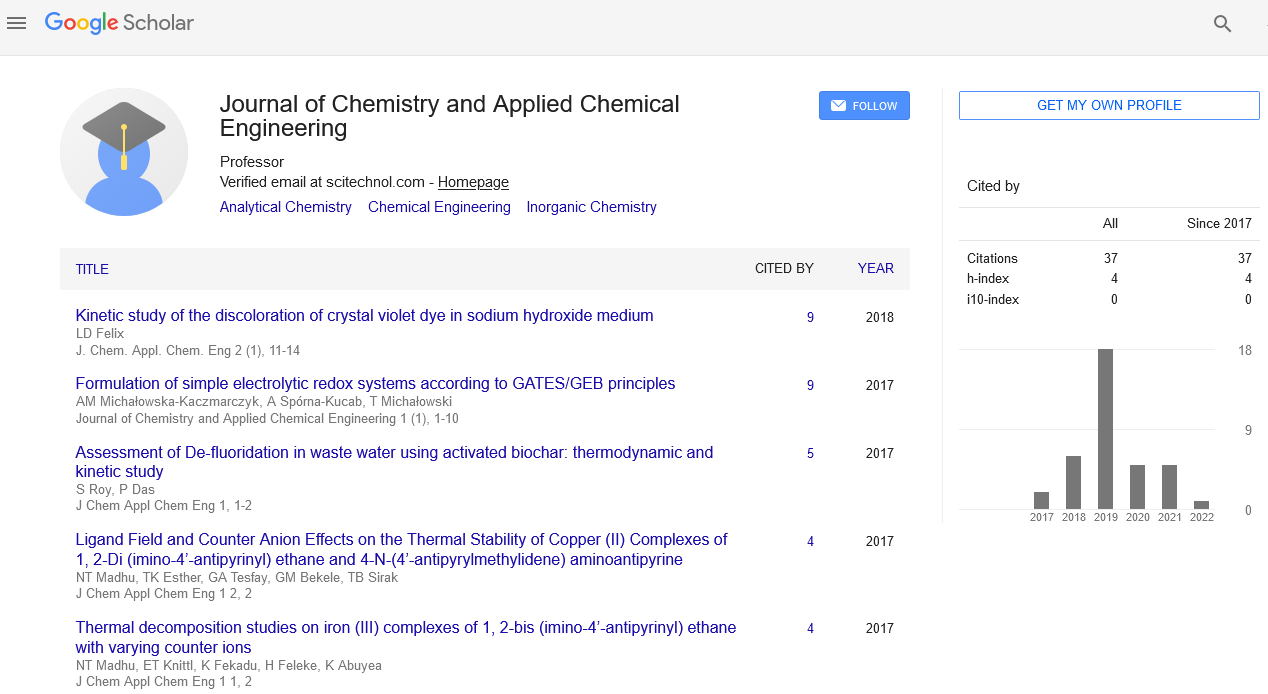Regulatory challenges to oil & gas industry and environment protection: A critical analysis of Asia
Tabrez Ahmad
University of Petroleum & Energy Studies, India
: J Chem Appl Chem Eng
Abstract
With rising global demand, highly volatile prices and increasingly stringent environmental regulations, the oil and gas industry faces three major challenges: reduce costs, optimize the performance of its industrial base assets and improve its environmental footprint. Producing crude oil and refined products at a lower cost to stay competitive on the market is one of the industry’s major challenges. Optimizing production systems and environmental utilities on currently operating sites is therefore a priority for the oil industry. This maximizes production efficiency, reduces the costs of extraction and refining and thereby offsets the exploration costs. To sustain their supply of crude oil or gas, oil companies are looking to extend the life of mature sites but are also compelled to seek new sources of oil or gas for which extraction, transport and refining are much more complex and costly. For that, they aim to achieve 100% reliability of their plants: no unplanned shutdowns, increased throughput, secure, industrial assets. The oil and gas industry is a major consumer of water and energy resources and is therefore subject to increasingly stringent environmental standards. This constrains them to rethink extraction, production and distribution methods in order to obtain or maintain their license to operate. They also have to provide guarantees and ensure transparency in the environmental management of their activities. In most of the Asian countries water shortages are becoming more frequent and where tackling air pollution is a major government’s commitment to maintain environmental standards. The standards governing wastewater discharges in particular are currently the most demanding in Asia. This is a major compliance challenge for the industrial groups in Asia. We require solution of both upstream (exploration and production) and downstream customers (refining and petrochemicals) in the oil and gas industry. We require upstream build and operate treatment systems for injection water and water produced water, we have to find out a mobile water treatment solutions, and to manage waste (including hazardous waste), decommissions platforms, and create a range of services tailored to the specific needs of the sector. There is a need of a process for Downstream to treat water, wastewater, and cooling water, to provide surface treatment and automated cleaning services, to treat hazardous waste, produce steam and electricity, optimize energy efficiency in facilities and to recover products such as solvents, oily sludge, etc. Managing the life cycle of Water is central to all activities of the oil and gas industry. There is a requirement to control all the stages of the water cycle which can address all industrial challenges. These are required to support the oil industry in the development of an integrated and sustainable management of water resources. Regulatory thresholds for liquid waste and sewage effluent should be stricter. In terms of efficiency and innovation, the complete management of the water cycle for industrial applications should aim to reach zero liquid discharge (ZLD). Even under optimal circumstances, oil tank cleaning can be risky. Therein lays the added value of the Gator robot and related services.
Biography
Tabrez Ahmad joining University of Petroleum and Energy Studies, COLS as a Professor and Director he was the Professor and Founder Director Alliance School of Law, Alliance University, Bangalore. Dr. Ahmad served as Professor of IPR and Cyber Law at the School of Law, KIIT University. At the KIIT University, he was the Academic Coordinator for the School of Law & Head- Department of Private Laws. He was also a mentor at IPR KIIT-Technology Business Incubator, National Science Technology Incubation Board (NSTEDB) & Depts. of Science Technology, Govt. of India.
E-mail: tabrezahmad7@gmail.com
 Spanish
Spanish  Chinese
Chinese  Russian
Russian  German
German  French
French  Japanese
Japanese  Portuguese
Portuguese  Hindi
Hindi 